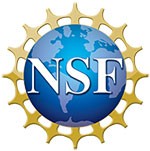With the name “Augie,” we look back to the Villanova tradition of adventure and look ahead to the challenges of extending research potential both on campus and in collaboration with others–both locally and nationally.
Looking Back
In October 1841, two Irish Augustinians–Frs. Kyle and Moriarty–found a way to purchase the 200-acre Belle Aire Estate in Radnor where the Augustinian College of Villanova was founded. These parish priests, inspired by the love that St. Augustine had for seizing opportunities to make a difference, faced several successive challenges: the Nativist riots of 1844, a world financial crisis in 1857 and the Civil War. Each time, however, a way was found to adapt and move on, strengthened by the experience.
Augustine once said: “Anyone who has learned to love the new life has learned to sing a new song” (Sermon 43,1). He added that the song is new because the people that sing it are new, and Christ has made them new. Rising to new challenges was a significant part of his experience, whether in his time as a student in North Africa or as imperial rhetor in Milan, Italy in his early 30s. Then, seized by the people of Hippo as their priest, he learned how to help a down-trodden people come together and care for the common good of others over the 33 years of being their bishop.
That same spirit was found in the 13th century men who came together to form the Augustinian Order. With courage and a sense of the needs of the time, they used their restlessness to serve others with a passion for truth and a willingness to adapt to the needs of the time.
Looking Ahead
A new and important means to do something new and to do so with others is now provided by the grant which allows Villanova to use “Augie”–the High-Performance Computing Backbone–to enhance research on campus (for research faculty and in graduate and undergraduate courses) and to collaborate with others, both locally and nationally. Like Augustine and Augustinians of other ages, the faculty at Villanova have another way to sing a new song for the common good.


